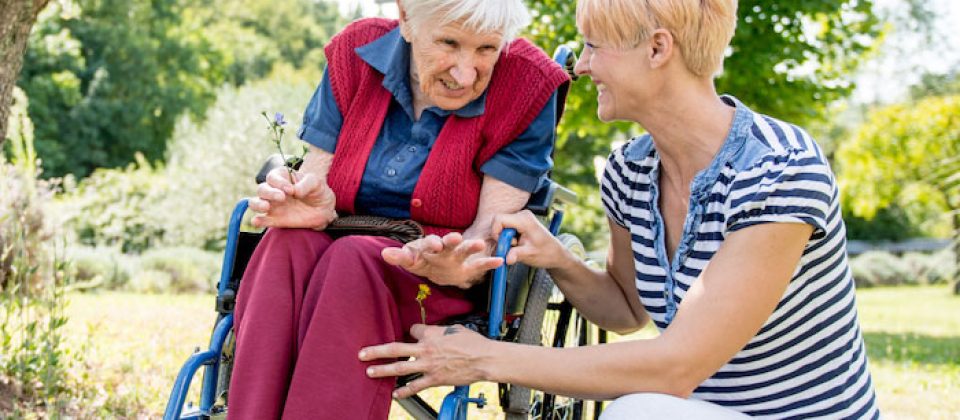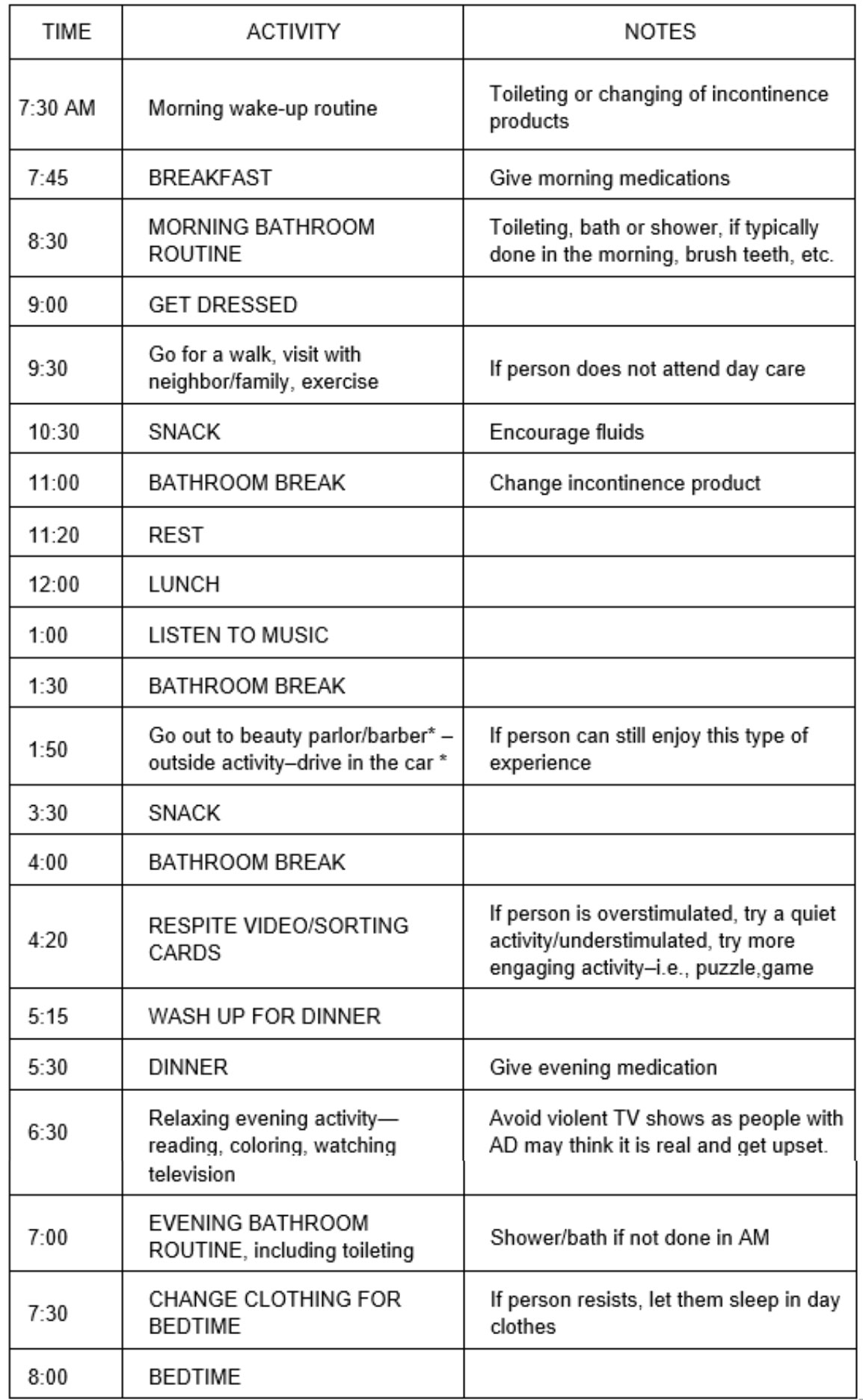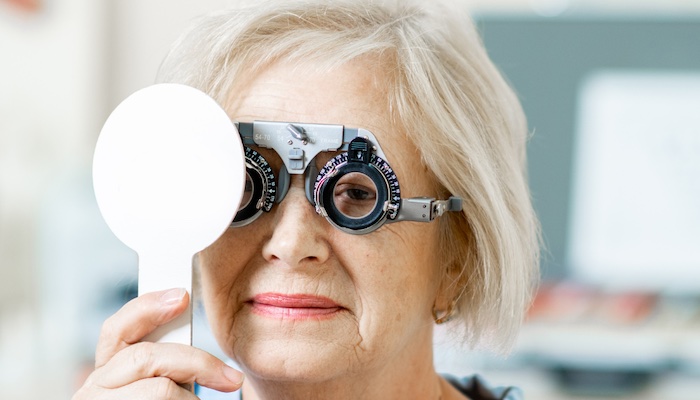

Plan Day-to-day Activities in Alzheimer’s Care
One of the results of Alzheimer’s disease (AD) is that the person is unable to plan how to spend her time. They are also unlikely to initiate activities and reach out to friends or family. They often spends much of the day napping and pacing, which results in what others would judge to be an “empty day.” They may also forget to have meals, toilet themselves, and conduct other routine activities. That is why it is important for you to set up a plan for day-to-day activities that can be followed on a regular basis. In time, the person will become familiar with the routine you have set up, and will feel reassured by knowing what to expect.
Having fun and enjoying life is important for everyone. But people with (AD) lose, little by little, the ability to do those things that they enjoyed in the past. Hobbies, concerts, guests can become too complicated for confused people.
Most caregivers focus on those activities the person with AD no longer should do, such as drive, work or go out alone. But, to help maintain good self-esteem, it is also important to help the person with AD continue to engage in meaningful activities and participate in family and community life. To do this, decide what activities they can do and help them adjust for abilities that are lost. Accentuate the positive.
Activities should make the best use of a person’s remaining strengths and skills, and be based on interests and hobbies developed over a lifetime. These include activities like going for walks or gardening, which you can enjoy together. Meaningful activities can also reduce the risk of agitation or upsetting behaviors.
We all enjoy experiencing things through our senses—smelling a flower, watching a sunset or a familiar taste or smell. Some people enjoy touching a smooth piece of wood or stroking a furry animal. The importance of touch becomes even more important as AD progresses. Also when there is no activity they can do, touch can become an important part of communication and simply holding hands becomes an activity.
Caring for plants or pets can help the person with AD express feelings of caring. He or she will still appreciate signs of affection. Depending on your relationship, holding hands, hugging, brushing hair, rubbing on hand cream or other adult uses of touch (acceptable adult expressions of caring and concern) may provide emotional satisfaction to both of you.
Listening to music and singing can be both enjoyable and calming. Memory of song lyrics can remain longer than the person’s ability to carry a conversation.

Memory Care – Your Tone
Regardless of the AD stage, speak gently to the person and maintain eye contact. Smile warmly and often. The person with Alzheimer’s may not understand or respond, but will sense your feeling and react to it.
Taking Care of Yourself – Guilt Can be Crippling
You can easily believe that you’re not doing a good – enough job as a caregiver. Keep in mind that you are doing the best you can, and stay open to suggestions that can help you improve.
Burnout may explain your loss of interest in activities you used to enjoy, your run-down condition, feelings of hopelessness and helplessness, and even wanting to hurt yourself or the person in your care. If you have these feelings, it is time to re-evaluate your caregiving situation. You should take steps to get more support and relief from the constant responsibility and stress of caring for a person with Alzheimer’s disease.

Safety Tips -Vision and Hearing Care
A person with Alzheimer’s should have regular eye examinations. Poor vision can contribute to confusion. These exams can also spot or detect other serious diseases such as diabetes. Finding and treating eye disease early can prevent serious diseases from getting worse and leading to blindness. Tell the doctor of any medicines the person is taking and if there is a family history of glaucoma. Get a yearly eye exam for a person with diabetes.
- Contact your state’s Commission for the Blind for information on vision aids for those with low vision.
- Ask for help in finding products (“talking” watches, etc.) and aids that will help the person adjust to low vision.
Hearing loss can make it more difficult for a person to understand and respond appropriately or take part in social activities. It will help the person to hear if you speak slowly and clearly, rather than raising your voice. It is difficult for anyone to adjust to a hearing aid, and even more difficult for someone with AD, but it may be worth exploring the possibility of getting one.